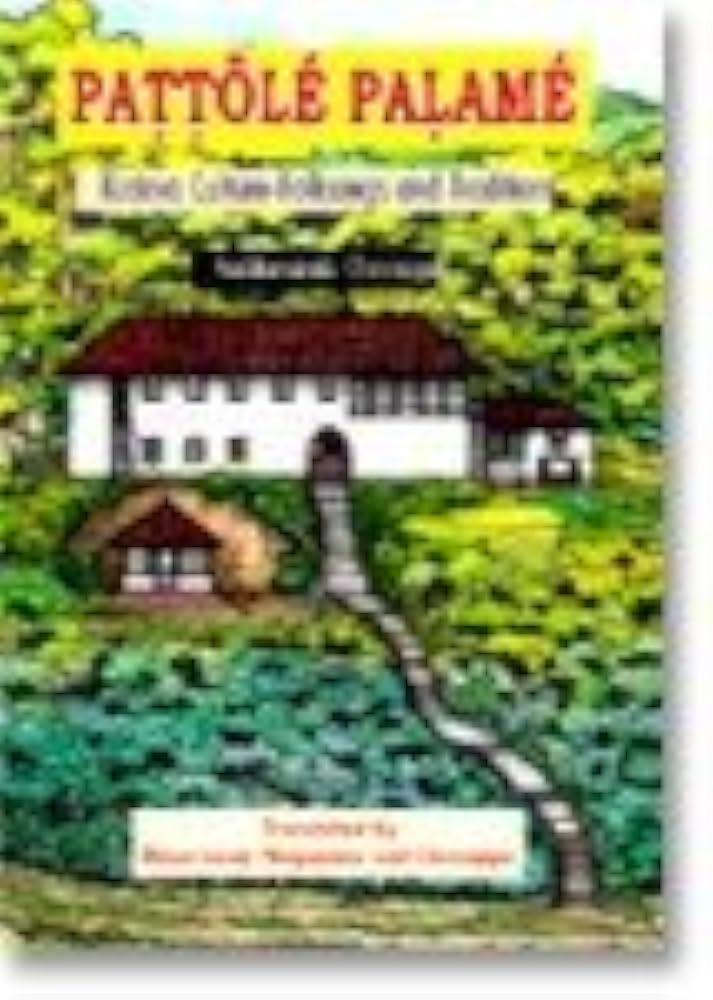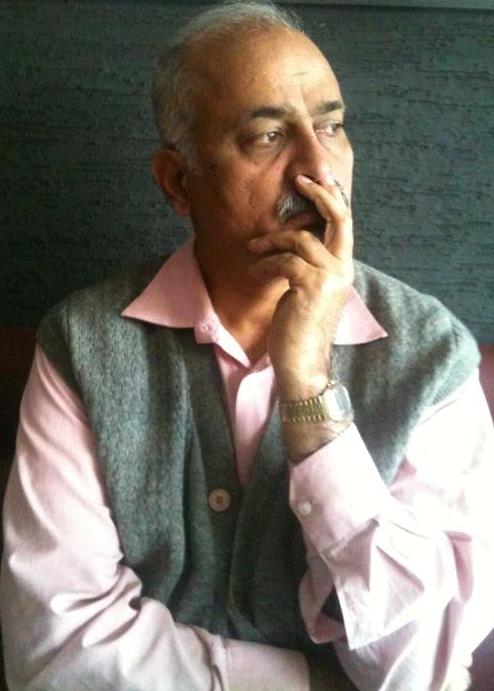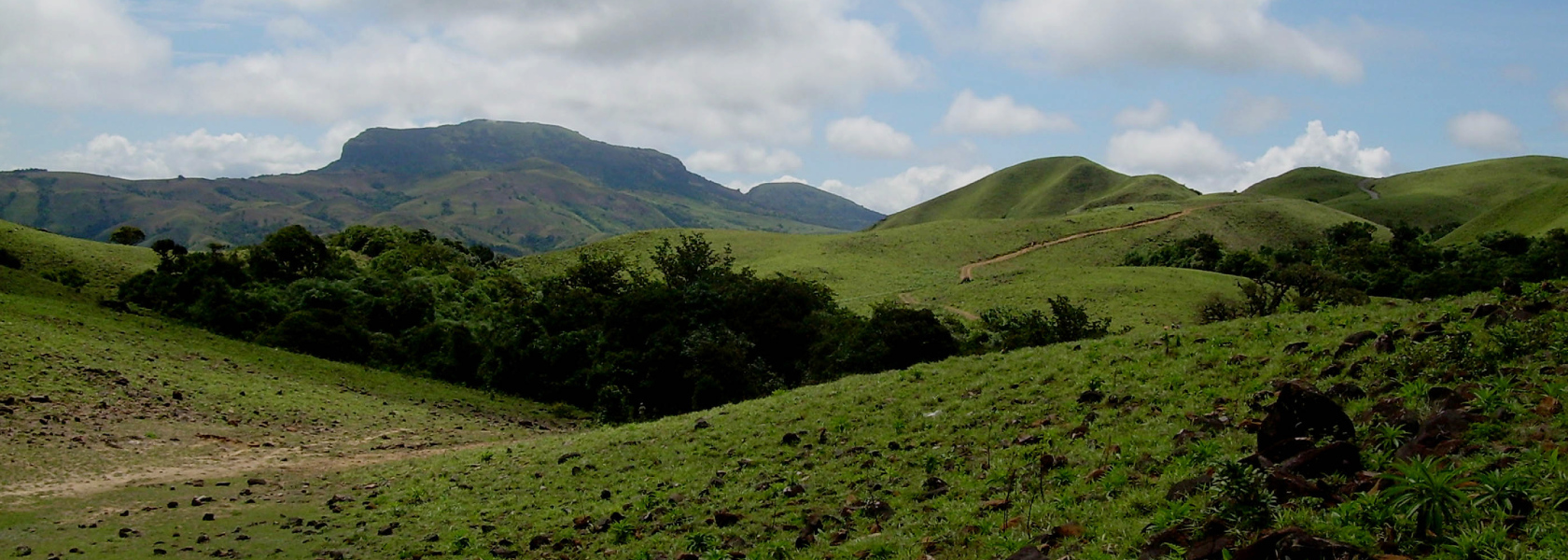
Blogs
MAGNUM OPUS: LIFE AND TIMES OF NADIKERIANDA CHINNAPPA, COMPILER OF ‘PATTOLE PALAME’
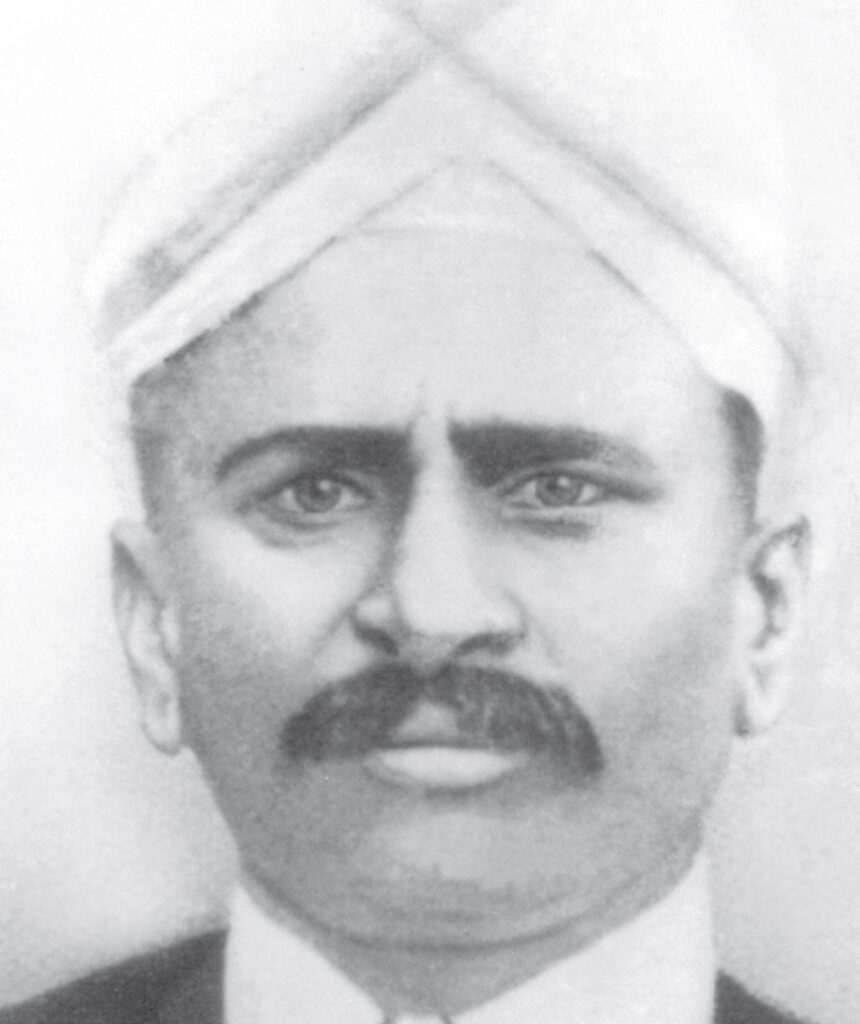
By Boverianda Nanjamma and Chinnappa
Much as we admire him and are inspired by him, we have never seen our grandfather Nadikerianda Chinnappa – he died before we were born. We are cross-cousins. This narrative is based on recollections of our parents, aunts and elder cousins, gleaned in casual conversations over the years.
He had gone to a remote village, riding his horse across a stream and through a forest path to investigate a quarrel over ownership of a strip of land. On his way back, he stopped by the stream to eat the rice roti sweetened with jaggery that his wife had packed for him. The sun was setting behind the hills, and had painted the scattered clouds in brilliant hues of red and gold. Captivated by the scene, Nadikerianda Chinnappa (in picture) sat lost in thought, when he heard the distant sound of Kodava dudis (drums). He mounted his horse quickly and raced towards the drum-beats. Four men seated around a bon-fire near the village green were singing Kodava folk-songs, practicing for Puthari, the harvest festival. It was getting dark, but he waited for them to finish. They recognized him, and touched his feet respectfully. He invited the leader of the team, and took him home on his horse.
This was not uncommon – his wife Nanjavva knew that he had brought a singer home for the night. She made a bed for the visitor in the attic, and served them a hot meal with a drink of frothing toddy. Refreshed, Chinnappa and the singer sat in the hall, and while the singer sang a ballad, Chinnappa transcribed the words late into the night. After many such sessions with singers, he had a good collection of Kodava songs sung during weddings, funerals and festivals, and ballads in praise of deities and heroes.
Himself a good singer, it was Chinnappa’s passion for Kodava songs and ballads that prompted him to collect them. During his travels around Kodagu as a Police officer, he observed that the unique customs and traditions of the Kodava community that he belonged to and was proud of, were being forgotten or changed. This was in the early 1920s. He feared that Kodava traditions and songs that had been handed down orally over the generations would be lost, because of the dominance of the English language, and the influence of the cultures of neighbouring areas. So he decided to document them.
After work, late in the evenings, he neatly wrote down all the songs, proverbs and riddles that he had compiled, by the dim light of a kerosene lamp, literally burning the midnight oil, while smoking his favourite cigars. When he started documenting the customs and traditions, he consulted his mother Ponnavva who was well-versed in them. His wife would read what he had written to ensure that it was clear to a lay person. If there were parts that she did not understand, he tore up the pages and rewrote them. The waste paper basket was always full in the morning.
While he worked, his concentration was absolute. One Sunday, when he was writing at his desk in the verandah of his ancestral home, his two-year old son stood at the edge of the verandah, about four feet above the stone-paved court-yard, and called out “Appa, shall I jump? Shall I jump?” A servant maid who was sweeping the yard saw this and chided her master “Is your scribbling that important that you cannot listen to your son?”
British officials in Coorg (as Kodagu was called by them), encouraged Chinnappa and got his draft book reviewed by some prominent Kodavas. On their recommendation, C.S.Sooter, Commissioner of Coorg, authorised financial assistance to publish it. Chinnappa chose the name Pattole Palame, meaning ‘Silken Lore’, for his book, which was first published in 1924. Its 6th edition was printed in 2012.
The Pattole Palame, is a precious document of the heritage of the Kodava community. In the second edition published by the University of Mysore in 1975, the editor describes it as one of the earliest, if not the earliest, extensive collection of folklore of any Indian community written in an Indian language by an Indian.
The text of the Pattole Palame is in Kannada and the folksongs, proverbs etc., in it are in Kodava thakk, the language of the Kodavas, an oral language written using the Kannada script. Nearly two-thirds of the book consists of folksongs that were transmitted orally down generations, and are sung even today. Traditionally known as Balo Pat, these songs are sung by four men who beat dudis as they sing. The songs have haunting melodies and evoke memories of times long past. Kodava folk dances are performed to the beat of many of these songs, which are a rich source of information on the language, culture and history of the Kodava people.
Nadikerianda Chinnappa himself began translating the Pattole Palame into English, but could not complete it. He died of cancer in 1931 at the age of 56, a few months after his retirement. It was in 2003, nearly 75 years after the Pattole Palame was published, that we, his grandchildren, translated it into English and published it.
Although he was best known for the Pattole Palame, Chinnappa’s major literary work as a poet was the Bhagavantanda Paat, his translation of the Bhagavad Gita into the Kodava language, composed in the style of Kodava folksongs, published in 1929.
When Grierson, a British linguist, embarked on the first Linguistic Survey of India (1913 to 1920), he looked for knowledgeable representatives of the various Indian languages. Chinnappa, who was good in both English and Kodava thakk, was chosen for the Kodava language. As required, he translated the parable ‘Prodigal Son’ into Kodava thakk and narrated it, and sang his own poem on the river Kaveri “Sri Moola Kanniye”. These were recorded in 1922 on gramophone records, and copies of the recordings in all the languages were kept in the British Library in London and in the Madras Museum. They were digitised recently by the Linguistics Department of the University of Chicago.
Born in 1875, Chinnappa was the fifth of eight children. After matriculating in Madikeri, he went to Mangalore for further studies. But when his elder brother Subbayya died suddenly, Chinnappa returned to Kodagu to take on family responsibilities. In accordance with Kodava tradition, he married Subbayya’s widow, Nanjavva.
His career took many twists and turns. A teacher at first, then a Revenue Inspector, and then an officer in the Coorg Regiment of the army, he joined the Police Department when the regiment was disbanded in 1904, and rose to the rank of a Prosecuting Inspector.
Chinnappa was fond of sports. He was a bowler in the All Coorg XI Cricket team, which in those days consisted mainly of Englishmen. When he played billiards at the Victoria Club in Virajpet, his British opponents would often swear under their breath on losing a game to him. On one such occasion, Chinnappa lost his patience, broke the billiards stick on his knee and threw it on the floor. This was a very daring act for an Indian, and the story made the rounds in the club for a long time.
Chinnappa was involved in establishing the Police Officers’ Co-operative Society, Coorg Co-operative Society, Coorg Central Bank and the Coorg Education Fund.
He was known to be very fond of children and always had peppermints in his pockets for them. He was a caring father to his own three children, to his two step-children by his elder brother, and to his deceased sister’s daughter, whom he and Nanjavva adopted. He sponsored the education of many poor children, and there were always a few students boarding in his residence, free of cost.
Nadikerianda Chinnappa was a man of vision and talent, who was self-driven. He was a folklorist, poet, police officer, sportsman, historian, singer, philanthropist, and a caring householder. Above all, he was a man who lived life to the fullest and left a lasting and invaluable legacy for his people in his writings.
Images
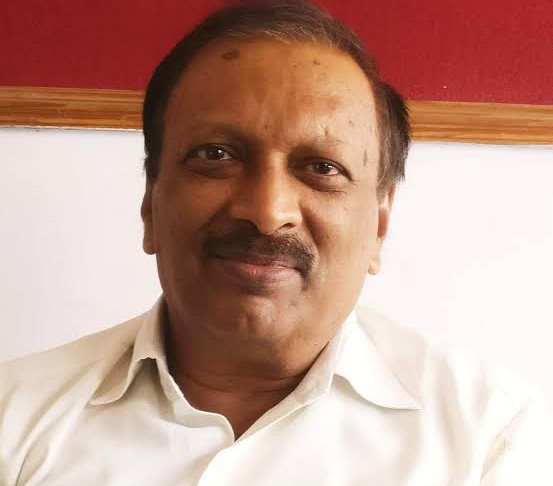
BIRD-WATCHING: FEATHERED JEWELS OF COORG
By P.T. Bopanna Dr S.V. Narasimhan (in picture), the author of the book “Feathered Jewels of Coorg” is a medical […]
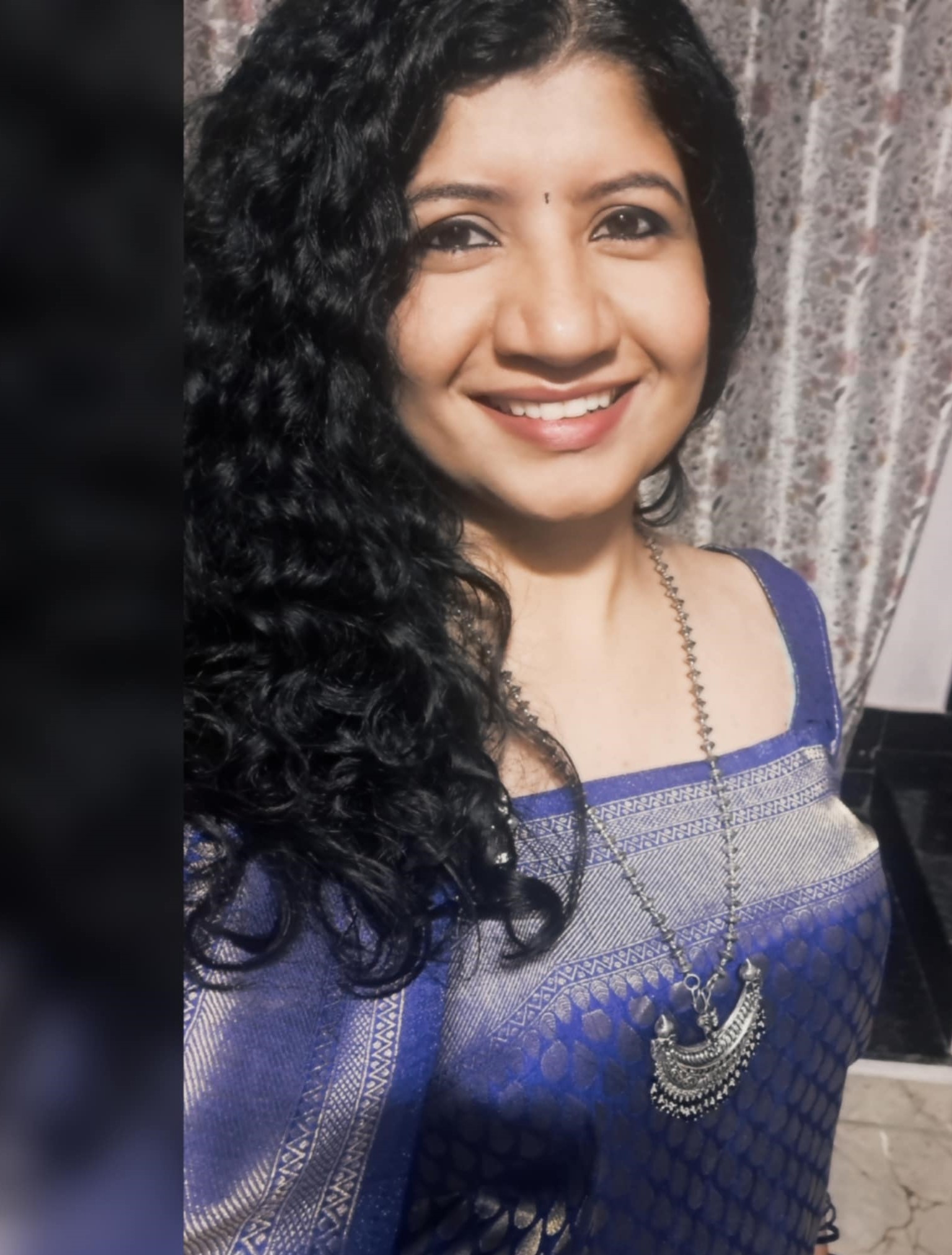
NEW FASHION TREND: SILVER SHINE FOR KODAVA (COORG) JEWELLERY
By P.T. Bopanna In keeping with changing trend, it has become a new fashion to customise the traditional Kodava gold […]

